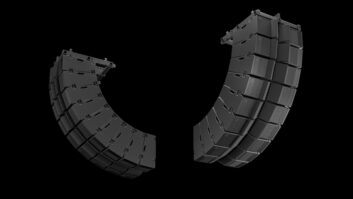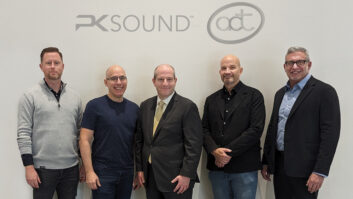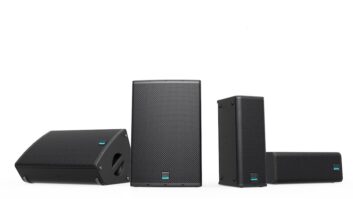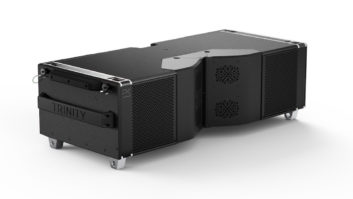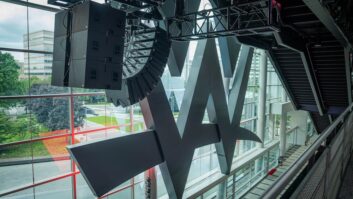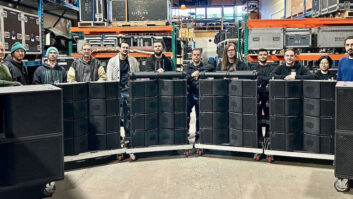LAS VEGAS, MAY 16, 2024 — ACT Entertainment will present PK Sound’s new Robotic Line Source System at InfoComm 2024 (Booth C8034). Comprised of the T8 robotic line source element and T18 intelligent subwoofer, this sub-compact line source range is the industry’s first loudspeaker solution to offer robotic control. ACT Entertainment is the official North American distributor of PK Sound solutions. ACT/PK Sound will also demo the new system in InfoComm Demo Room N221.
Featuring PK’s patented multi-axis robotics, T8’s stunning output — with peak SPLs reaching 143.5 dB — is precisely controlled down to 400 Hz in both the vertical and horizontal planes. The result is an unparalleled degree of flexibility and precision in system dispersion for designers or operators in virtually any application. Used in tandem with the accompanying T18 intelligent subwoofer, PK Cell modular touring rack and PK .dynamics control software, the T8 system delivers PK Sound’s patented remote and real-time multi-axis robotic coverage control to a wider range of users and applications in the touring and rental, performance installation, theatrical, worship, nightlife and corporate event verticals.
Integrated inclinometers and network-based Auto-Array via .dynamics software enable each T8 module to recognize its position and angle within the system, enhancing the speed, safety and accuracy of any deployment. Robotic control, onboard DSP and network data are routed through the world’s first implementation of Neutrik’s DR Series of IP65-rated connectors for maximum stability.
A pair of vented 8” Tetracoil transducers with custom phase plugs manage low-frequency response while a Dual Ring Radiator coaxial compression driver handles mid and high frequencies. This three-way, high-directivity design offers detailed and variable pattern control of frequencies from 20 kHz down to 400 Hz, resulting in significant SPL reductions between on-axis and off-axis coverage points. A two-channel VE15 1,400 W Class D amplifier maximizes headroom while maintaining crystal clear audio and exceptional output.
The elongated waveguide of the T8 is robotically manipulated to offer variable symmetric and asymmetric horizontal dispersion in 49 configurations, from 60 to 120 degrees, so users can shape an array’s radial directivity remotely and in real time. This enables the configuration of tapered arrays, precisely tailored to meet the unique coverage requirements of any venue or event. Users can focus energy on the audience and away from reflective surfaces or obstacles in indoor venues for maximum intelligibility, in addition to mitigating noise impact on on-site points-of-sale or surrounding commercial and residential areas in outdoor applications.
Flown straight, the array’s directivity is then configured remotely using industrial linear actuators. Vertical angles are variable with 0.1-degree accuracy, and an entire system can easily be configured and flown by a single operator. A combination of FIR and IIR filters is applied to ensure smooth frequency response throughout the listening area.
The high-output, low-profile T18 intelligent subwoofer offers outstanding low-frequency performance with peak SPLs of 140.4 dB and an operating range of 25-100 Hz. Sharing many internal components with PK Sound’s flagship T218 subwoofer, T18 features a front-loaded, long-excursion 18” transducer in a bass reflex design for clean and punchy output. A large, unrestricted vent enables high SPL performance with minimal port distortion.
A single, field-replaceable module located on the rear of the cabinet contains the 2,700 W Class D amplifier, control electronics and power supply. DSP and Milan-ready networking simplify set-up and calibration while optimizing acoustic performance even for advanced deployments including cardioid configurations and arc delays.
